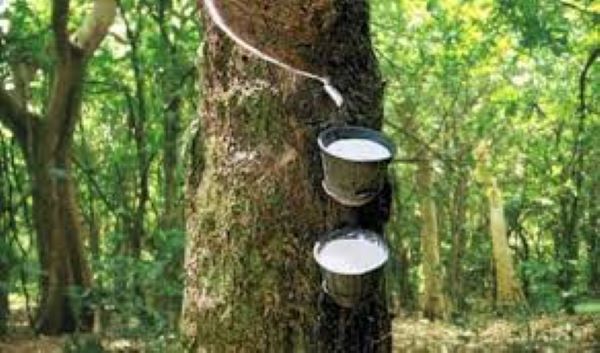The National Association of Rubber Producers, Processors and Marketers Association of Nigeria (NARPPMAN) says the country is working towards contributing at least 12 per cent of global rubber production.
NARPPMAN’s National President, Mr. Peter Idowu, made this known on Thursday in Abakaliki during the inauguration of the association’s pioneer state executive in Ebonyi.
“Our target is to contribute at least 12 per cent of global rubber production because Nigeria has enough land and resources to achieve it. We are poised to collaborate with government institutions, corporate organizations and international partners in building a resilient rubber value chain,” Idowu said.
He explained that the association was committed to reviving the rubber sector and repositioning it as a key driver of agricultural and industrial development. According to him, the Ebonyi chapter is the 18th to be inaugurated since the association’s formation in 2019, with plans underway to establish 24 state chapters nationwide.
Idowu added that NARPPMAN was determined to restore rubber’s pride of place among Nigeria’s export crops, contribute to natural resource management and alleviate poverty through sustainable production. He also called on the Ebonyi government to work with the association in developing a comprehensive rubber policy with a focus on out-grower schemes, off-takers, processing, and marketing.
In his remarks, Mr. Jonathan Udu, Chairman of the newly inaugurated Ebonyi chapter, described the event as a milestone in diversifying agriculture and reviving rubber production in the state. He recalled that rubber was introduced during the colonial era alongside cocoa and palm oil but had declined over the years.
“In spite of the challenges, rubber still has immense potential to drive economic growth, create jobs and empower communities. We pledge to work with the national body, government and private sector to reposition rubber as a major agro-industrial product in Ebonyi,” Udu said.
He commended Gov. Francis Nwifuru for prioritising agriculture in his People’s Charter of Needs agenda, describing his policies on food security, youth empowerment and agro-business as a strong foundation for rubber development.
Also speaking, Dr. Steve Odo, Director-General of the Ebonyi Small and Medium Enterprises Development Agency (SMEDA), assured farmers of the government’s full support.
“Rubber is one of the crops that can diversify our economy. The government will work with NARPPMAN to support farmers with inputs, extension services and access to markets,” Odo said.
Traditional ruler of Ebouwana Edda, Eze Charles Azuenya, pledged to donate land for rubber cultivation, describing the association’s presence in Ebonyi as historic. Similarly, Chief Ugo Nnachi, an ex-officio member of the new executive, said the state could become the South-East hub for rubber production with adequate farmer incentives.
The Commissioner for Agriculture and Natural Resources, Mrs. Nkechinyere Iyioku, represented by Chief Fidelis Mwankwo, welcomed the initiative and assured of government partnership. She urged the new leadership to develop practical strategies to boost rubber plantations in the state.
The event also featured the swearing-in of the 10-man state executive.
For context, Côte d’Ivoire remains Africa’s largest natural rubber producer with an annual growth of over 30 per cent and a record 1.7 million metric tons in 2023. In 2024, the country became the world’s third-largest producer, accounting for about 12 per cent of global output.


